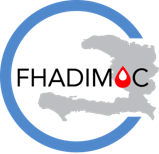The main risk factors for heart disease and stroke are poor nutrition, lack of physical activity, smoking and the harmful use of alcohol. These behavioral risk factors account for approximately 80% of coronary and cerebrovascular diseases.
The effects of poor diet and lack of physical activity can result in individuals with hypertension, hyperglycemia, elevated lipids, and excessive weight and obesity. These "intermediate risk factors" can be assessed in primary care settings and are indicative of an increased risk of heart attack, stroke, heart failure and other complications.
Quitting smoking, reducing salt intake, eating fruits and vegetables, regular physical activity and avoiding the harmful use of alcohol have been found to reduce the risk of cardiovascular disease. This risk can also be reduced by preventing or treating hypertension, diabetes and hyperlipidemia.
Policies that create the right conditions to make health choices both affordable and possible are essential to motivate people to adopt and stick to healthy behavior.


